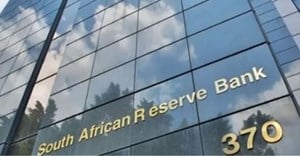Navigating turbulent waters: Unpacking Sarb's repo rate decision

While media at the press briefing were champing at the bit to get more information on the unravelling of the rand/dollar manipulation that's hit headlines, Kganyago was mute on details of those implicated in a saga which points fingers at 28 banks. They have come under investigation by the Competition Commission for their alleged rand/dollar manipulation between 2007 and 2013.
The investigation was opened in 2015.
Justice delayed, is justice denied, some would say, but this month Standard Chartered - a British multinational lender - broke rank and took responsibility for its involvement in the cartel. It has paid a R42.7m fine and is putting pressure on other banks involved in the market manipulation to come forward.
"The Competition Commission are the authorities on that, and that is where questions should be directed to," Kganyago said, refusing to embellish on the matter.
Kganyago shifted the emphasis from the specifics of the case to elucidating the central bank's role in the investigation, emphasising that the Competition Commission sought assistance from the Sarb.
"In 2015, we picked up globally that there were reports of market abuse by institutions in various markets. In the UK, there was possible market manipulation; there were fluctuations in the foreign-exchange markets. We decided that we are going to start making enquiries and we asked the former deputy governor of the Reserve Bank, James Cross to start a process to establish whether they were aiming at business. That report is available on the Sarb website."
The Commission has welcomed @StanChart's decision to admit liability to the manipulation of USD/ZAR currency pair. Tune in to one of these interviews to hear more about it & the impact of currency manipulation:@Hot1027FM 15:45@SAfmRadio 16:20@Newzroom405 17:05@SABCNews 17:40 pic.twitter.com/8o3s3yDY44
— CompComSA (@CompComSA) November 15, 2023
"Among its recommendations was that we must generate a code for the foreign-exchange market in South Africa. As we were trying to develop that code, we established that the Bank for International Settlements (BIS) was working on a global code. SA joined that process for developing that global code. We pledged our commitment to that code - that pledge is on the website of the Sarb. Many central banks around the world have made a pledge of a similar nature.
"While we were busy with that enquiry, the Competition Commission approached us. They said to us that they picked up news from some foreign authorities that - among the allegations of global manipulation of exchange rates - was a rand/dollar pair.
"Based on that they said they are embarking on a process of enquiry. They approached us and asked us for assistance because we are in the foreign-exchange market. We spent hours and hours with them; we provided them with all the assistance they required. Should they require any more assistance from us they will get it.
"But they are the competent authority to investigate any allegations of market abuse or manipulation. They must be given the space to do their work and follow their processes, and we should not be burdening them with asking for running commentary."
Unveiling market manipulations since 2002
Kganyago confirmed that the 2015 investigation is one of three since 2002 - that have looked at alleged market manipulations. He noted the Sarb's 2002 enquiry into the "sudden" 2001 rand depreciation which resulted in "a bank [that] approached the Reserve Bank with an offer of settlement", and the 2009/2010 enquiry into the sudden rand appreciation which "saw the rand so strong, it made the life of SA exporters a living hell".
"The Reserve Bank was involved with these [two] enquiries [related to 2002 and 2009/10 respectively] because they dealt with breaches of exchange-control regulations," he said. "No commission of enquiry was called then."
Kganyago did not entertain a conversation on how this saga has impacted on SA's economy. He defaulted rather to future predictions. "If you want to know where interest rates are going, look at where inflation is going. The lower the inflation, the lower the interest rates you would have," Kganyago said.
He warned that the existing repurchase rate indicates a restrictive policy aligned with inflation concerns.
“At the current repurchase rate level, policy is restrictive, consistent with the inflation outlook and elevated inflation expectations. Serious upside risks to the inflation outlook remain. In light of these risks the committee remains vigilant and stands ready to act should risks begin to materialise."
Adding to speculation, Kganyago leaves the future of Sarb's leadership uncertain. With Deputy Governor Kuben Naidoo's recent resignation request, its acceptance remains unconfirmed, adding an element of suspense to the central bank's upcoming developments.




















